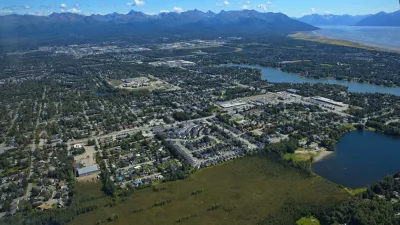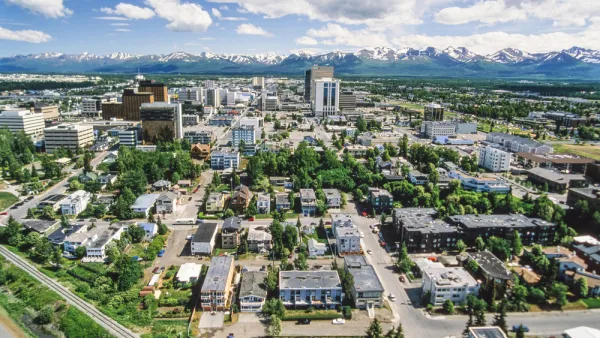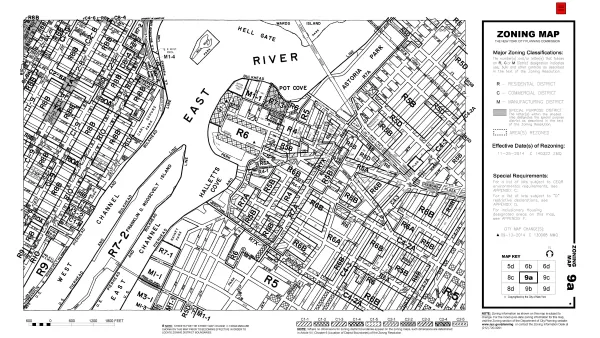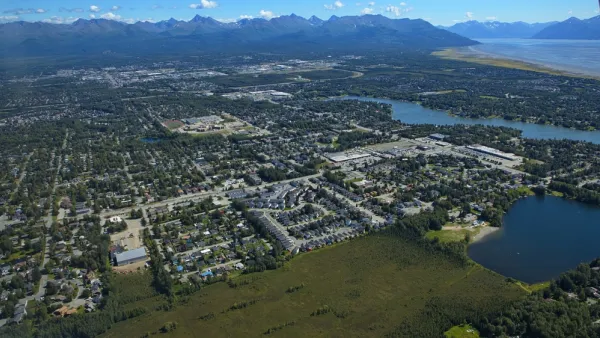If changes to Title 21 of the city’s municipal code are approved, Anchorage could go from having 15 types of residential zoning to one.

The Anchorage Assembly, fresh off ADU reforms and the elimination of parking requirements, are considering changes to the city’s residential zoning code that would consolidate zoning districts and make it easier to build multi-family housing in residential zones.
According to an article by Zachariah Hughes, elected officials have proposed changes to the city’s Title 21, the section of municipal code that governs residential zoning, to better realize the city’s long-term development goals, as expressed in the city’s 2040 Land Use Plan, adopted in 2017.
“[Assemblymember Kevin] Cross pointed out that many of the residential building codes in Title 21 are from a drastically different economic era, when high-paid oil and gas jobs drove development toward large single-family houses on big lots,” reports Hughes. “The latest proposal from Cross and his cosponsors states that demographic projections for Anchorage anticipate more aging households, families with fewer children, ‘diverse households and income levels that need more affordable housing options and more transportation choices,’ more multigenerational families and a less transient workforce.”
Hughes is reporting on the proposed reforms after Cross reduced the scope of the reforms from an original proposition.
“The original version of the measure from Cross and Assembly Vice Chair Meg Zaletel, who represents Midtown, proposed eliminating distinctions among the 15 different residential zoning district criteria in the municipality and replacing the complicated jumble with two broad categories,” according to Hughes. “The new version ‘further simplifies the proposal by creating a single residential zone, effective January 1, 2025,’ the Assembly members said in a statement.”
As also noted by Hughes, the proposal will not change zoning in business districts, the downtown district, or industrial districts in the city.
FULL STORY: Assembly members introduce revised plan to overhaul Anchorage residential zoning amid push for more housing

Analysis: Cybertruck Fatality Rate Far Exceeds That of Ford Pinto
The Tesla Cybertruck was recalled seven times last year.

National Parks Layoffs Will Cause Communities to Lose Billions
Thousands of essential park workers were laid off this week, just before the busy spring break season.

Retro-silient?: America’s First “Eco-burb,” The Woodlands Turns 50
A master-planned community north of Houston offers lessons on green infrastructure and resilient design, but falls short of its founder’s lofty affordability and walkability goals.

Test News Post 1
This is a summary

Analysis: Cybertruck Fatality Rate Far Exceeds That of Ford Pinto
The Tesla Cybertruck was recalled seven times last year.

Test News Headline 46
Test for the image on the front page.
Urban Design for Planners 1: Software Tools
This six-course series explores essential urban design concepts using open source software and equips planners with the tools they need to participate fully in the urban design process.
Planning for Universal Design
Learn the tools for implementing Universal Design in planning regulations.
EMC Planning Group, Inc.
Planetizen
Planetizen
Mpact (formerly Rail~Volution)
Great Falls Development Authority, Inc.
HUDs Office of Policy Development and Research
NYU Wagner Graduate School of Public Service




























